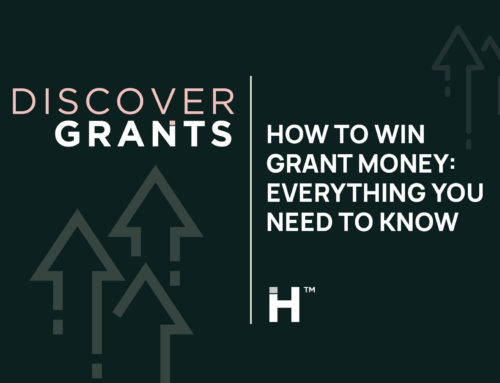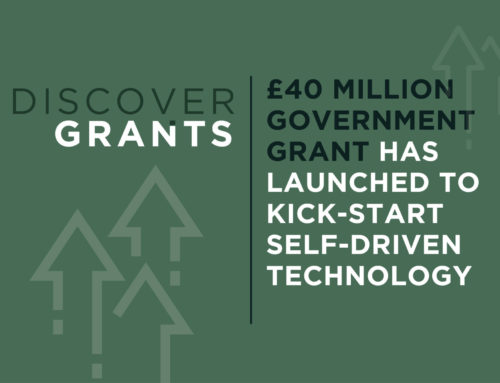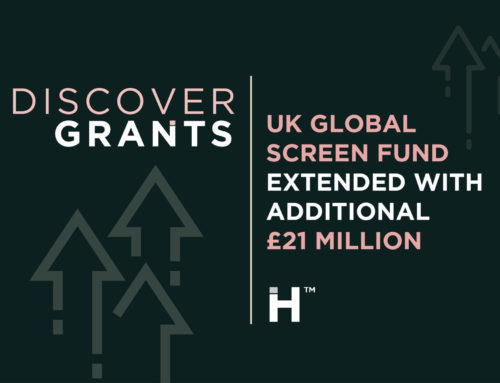Tips for securing a sole trader grant
If you’re looking for information on a sole trader grant, you’ve come to the right place. It can be hard knowing where to access grants. That’s where we come in. We’ve put together a handy guide on everything you need to know about sole trader grants and winning them.
What is a sole trader grant?
If you’re self-employed and have been impacted by Covid-19, you could be entitled to a sole trader grant. These are financial support schemes available for people who are self-employed and have been unable to work.
What grants are available?
Self-Employed Income Support Scheme (SEISS) round 5
Currently, the government are issuing the fifth stage of the Self-Employment Income Support Scheme (SEISS).
The online service for the fifth grant will be available from late July 2021. The deadline to apply is September 30, 2021.
The grant is subject to Income Tax and Self-Employed National Insurance Contributions. It must be reported on your 2021 to 2022 Self-Assessment tax return.
The grant also counts towards your annual allowance for pension contributions. Plus, SEISS grants are not counted as ‘access to public funds’. You can claim the grant on all categories of work visas.
You can check a list of genuine HMRC contacts if you receive any suspicious texts, calls, or emails.
Plus, you can contact HMRC if you cannot get the help you need online.
Who can claim?
To find out if you’re eligible for a sole trader grant, you need to meet a specific set of criteria. First things first, you need to be self-employed to apply for a sole trader grant.
To make a claim for a SEISS grant, check that you meet all criteria in stages 1 – 3:
Stage 1: Your trading status
You must be a self-employed individual or a member of a partnership. As well as this, you must also have traded in both tax years:
- 2019 to 2020
- 2020 to 2021
You cannot claim the grant if you trade through a limited company or a trust.
Stage 2: Tax returns and trading profits
You must have:
- Submitted your 2019 to 2020 tax return on or before 2 March 2021
- Trading profits of no more than £50,000
- Trading profits at least equal to your non-trading income
Non-trading income is any money that you make outside of your business. For example, if you also have a part-time job or pension.
HMRC will look back at previous years if you aren’t eligible based on your 2019-2020 trading profits.
Find out more about how HMRC works out trading profits and non-trading income.
Stage 3: Deciding if you can claim
When you make your claim, you must tell HMRC that you:
- Intend to keep trading in 2021 to 2022
- Reasonably believe there will be a significant reduction in your trading profits due to the impact of COVID-19. The time period should be between 1 May 2021 and 30 September 2021
If your business has been impacted by COVID-19, find out how to decide if you can make a claim.
If you aren’t entitled to a sole trader grant, it’s worth looking into Universal Credit. Your UC claim will be assessed with the following in mind:
- National insurance contribution
- Taxes from the previous tax year
- Savings.
Since the start of the pandemic, the government have released more grants to help out the self-employed. During the pandemic, many sole traders were unable to work and required financial support. The government introduced a number of schemes, such as a sole trader grant to help them financially.
How to win the grant
If you’re looking to secure a sole trader grant, here are our top tips for being successful.
Do your research
Don’t just go for the first sole trader grant you come across. Do your research and scope out multiple grants you can apply for. Take some time to see what opportunities are out there and whether you are eligible for them. Apply for as many grants as possible that match your objectives to increase your chances of receiving funding.
Know your deadline
Every grant will have a deadline you must submit your grant application by. You need to make a note of the deadline. This way, you’ll be more prepared to make a start on planning your application. You won’t get a second chance if you miss the deadline. It’s important to be organised and to use your time wisely.
Make sure you are aware of the grants being awarded
Be aware of the amount of grants a funder is giving away. If they are only giving a small amount of grants away, your chances of winning a competitive grant are slim. Look for grant-funding competitions with higher numbers. The more awards awarded, the higher your chances are of securing one.
Pay attention to the funder’s grant award funding range
You need to pay attention to the funder’s price range. You shouldn’t ask for more than their highest fund because they have already specified their limit. Don’t ask for £100,000 when the largest grant is £75,000.
Plan out your application
It’s wise to plan out what you’re going to say in your application. If you want to win the grant, you need to spend some time thinking about what you’re going to say. You need to make your application stand out from the rest.
Maintain contact with funders
After submitting your sole traders grant application, you need to contact potential funders that are reviewing your application. Planning your contact will remind funders you’re available to address questions on concerns about your grant.
Need help securing your next bid for funding?
Our Grant Writing Service is for businesses who want to start applying for grants, but don’t know where to begin. If you don’t have the resources or the time in-house to write a winning grant – we can help.
Our Grant Writing Consultants have over 60 years of experience in bidding for funding and grants. Whether it’s start-up business grants, cash grants for small businesses, council business grants, or grants for charities in the UK. They can take care of the whole thing for you – they’ll even submit it on your behalf.
Get in touch to find out how we can help your business grow!
Our Grant Tracker service hosts all the latest grant opportunities in the UK from 1,500 data points. We ensure accurate keyword labelling through manually tracking opportunities. This allows for accurate keyword labelling, optimising your search for the perfect grant. From grants for businesses to grants for artists UK.
Sign up for free!
Find more helpful tips and advice in our blogs. We cover topics including:





